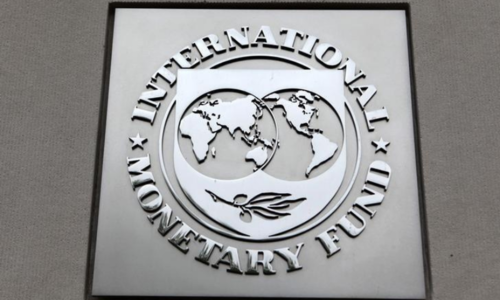PAKISTAN’S re-entry to the $6bn IMF programme is being touted by both the lender and the government as a demonstration of the authorities’ commitment to critical governance and economic reforms to support sustainable growth for job creation and poverty alleviation. Or at least this is what the communiqué issued by the IMF following the approval by the Fund of the second through fifth reviews of the arrangement seeks to tell us.
But what the IMF and the government are not telling us directly relates to the impact on citizens of ‘adjustments’ that Islamabad has already made or is required to make in the next few months. During the period between July 2019 when Islamabad signed the deal with the IMF and April 2020 when the programme was put on hold because of Covid-19, fiscal and monetary policy adjustments made under the programme saw the economy come to a virtual halt with thousands of people losing their jobs and several businesses closing down.
The resumption of that arrangement has prompted fears of a revival of that period. For instance, the IMF wants the government to continue its “prudent”, contractionary fiscal policy, which requires it to drastically cut its job-creating development spending, reduce its subsidy bill, as well as “reform” (ie raise) sales tax and income tax from the next fiscal year for mobilising revenues to “achieve a lasting improvement in public finances and place debt on a downward path”. Who gets hit by these adjustments? Obviously, the brunt would largely be borne by the low-middle-income segments that have already been shaken by the hefty increase in electricity prices, food inflation, job losses and pay cuts. Businesses will also feel the impact.
The withdrawal of certain corporate tax exemptions worth Rs140bn has already caused unease in the corporate sector as it will hurt growth prospects and diversification plans of the companies. In return, it seems that the Fund is expected to condone the government’s inability to reform its corrupt, inefficient tax machinery or broaden the tax net and execute governance reforms.
There are also fears that the unprecedented powers, unencumbered by parliamentary oversight, for the central bank may limit the government’s capacity to help people and businesses. Neither the IMF nor the government has explained how most of the proposed adjustments (in the name of reform), which will further squeeze fixed-income households and put more pressure on taxpayers, will “help the economy, and save lives and livelihoods”. There is little doubt that these adjustments would bring a semblance of “macroeconomic and debt sustainability” in the near term. But the question is: do short-term gains justify the costs that people will have to bear in the shape of massive job and income losses in the wake of sluggish growth? Shouldn’t the government focus more on real reforms instead of cosmetic changes to qualify for IMF dollars?
Published in Dawn, March 26th, 2021













































